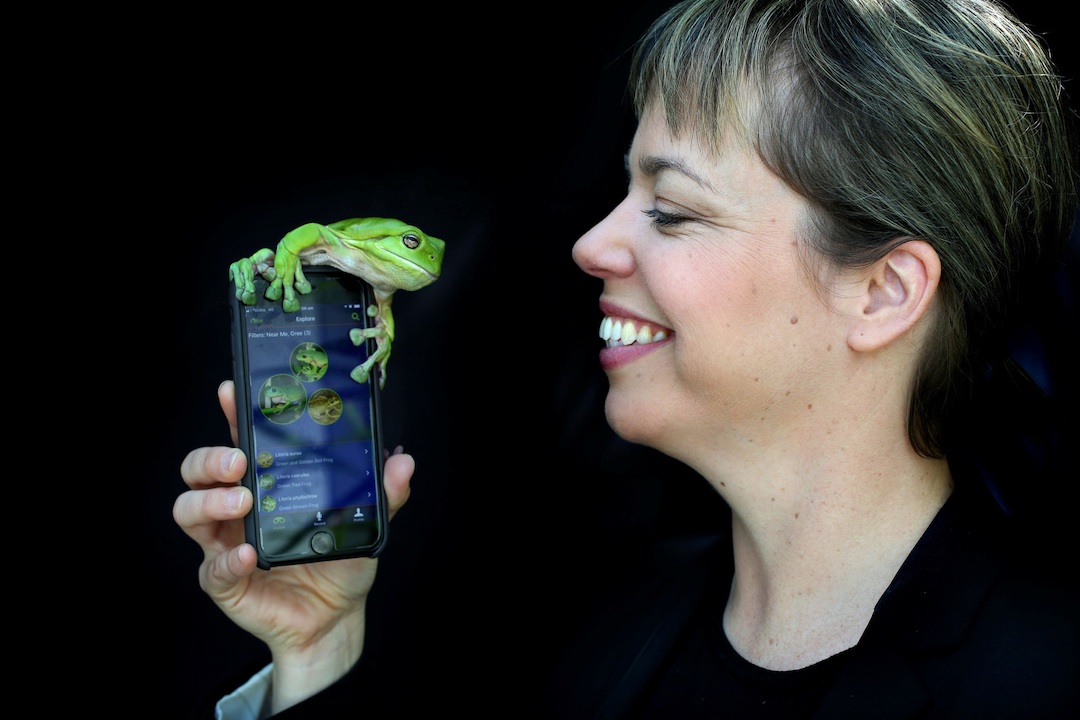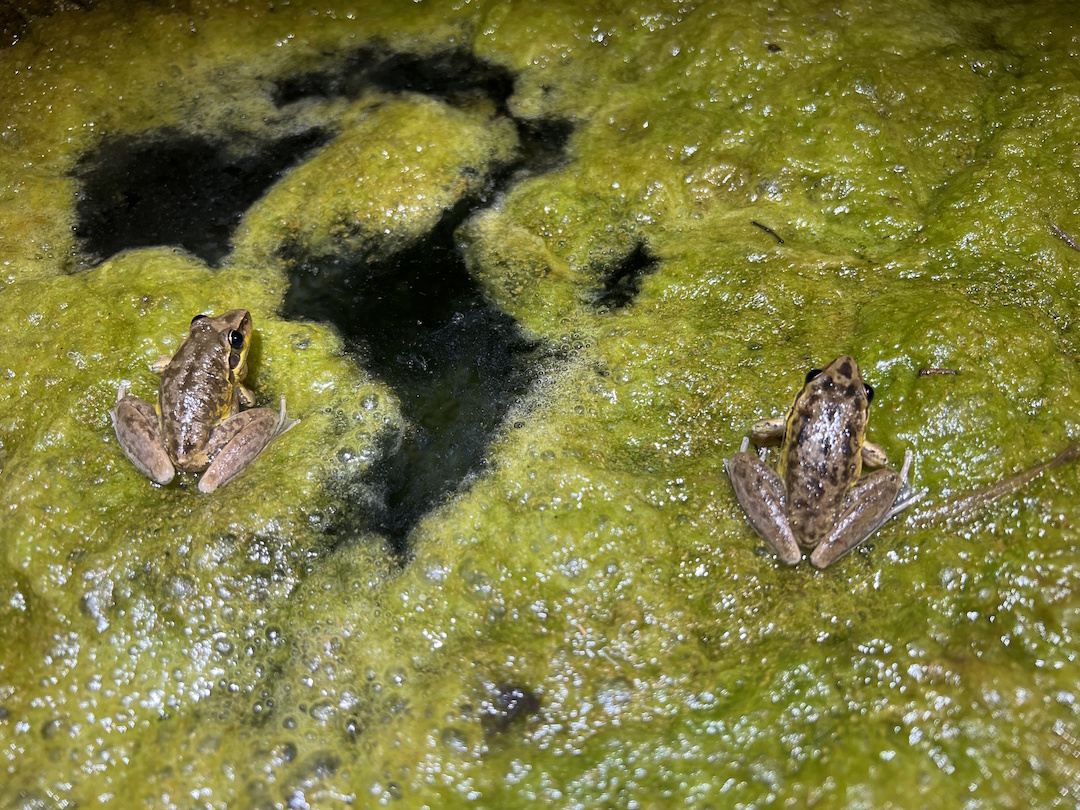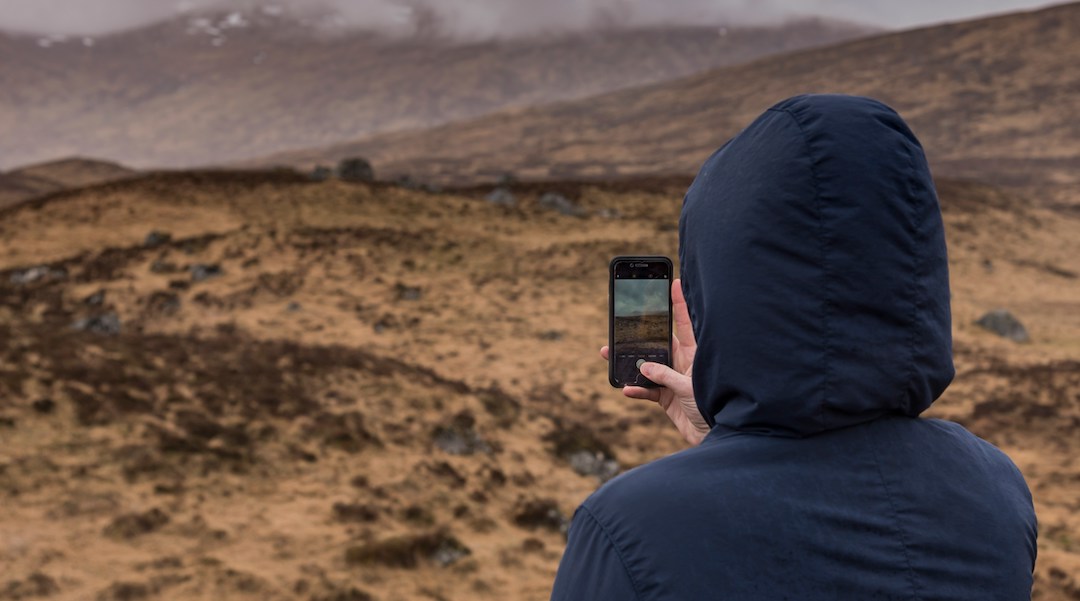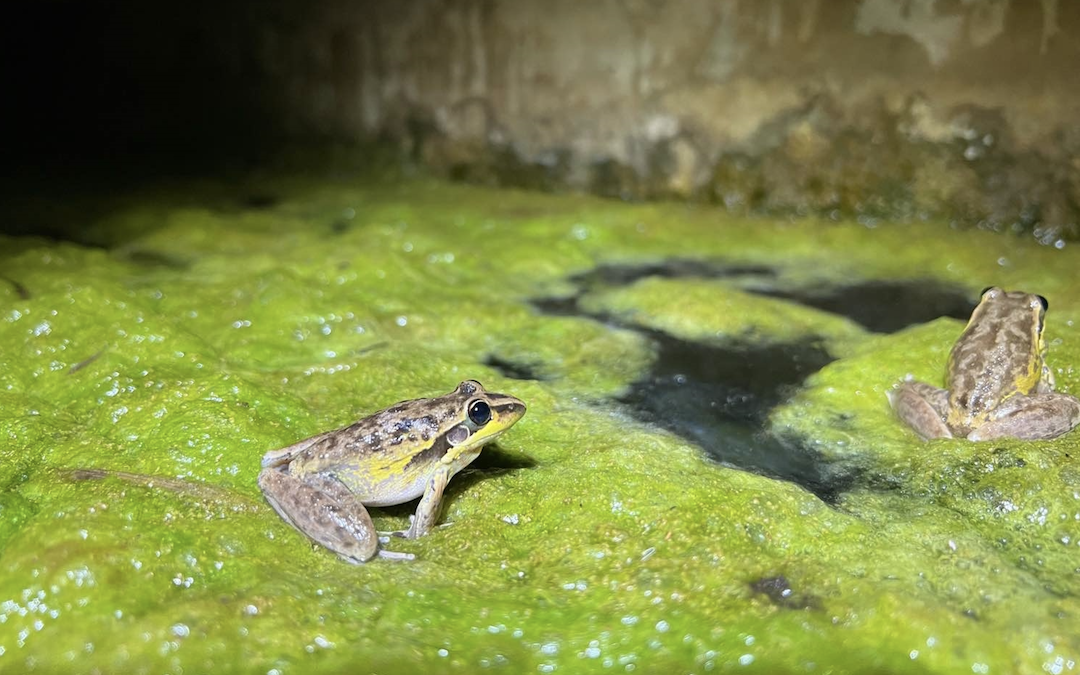FrogID has now recorded more than one million frogs.
The citizen science platform, established back in 2017, is responsible for recording and identifying more than one million frogs around the country. This provides an excellent database for scientists and policy makers when implementing conservation programs and researching ecosystems.
A major achievement
FrogID is a project run by the Australian Museum, and the largest global citizen science project focusing on frogs in the world.
Earlier this year, the one millionth frog was recorded by Dr Elliot Leach around 50 kms from Cloncurry in north west Queensland. The milestone amphibian was identified as a Spalding’s Rocket Frog. According to Curator of Amphibian and Reptile Conservation Biology at UNSW and lead scientist for FrogID, Dr Jodi Rowley, this frog species sounds like a chicken mixed with a lawnmower.

Dr Jodi Rowley, lead scientist for FrogID © James Alcock
“It’s an unmistakable sound! However, there are few recordings of this species in Queensland. It only calls during the wet season from Litchfield National Park in the northwest of the NT to far northwest Queensland near the Gulf of Carpentaria. Elliot Leach’s submission is also the first FrogID submission from the area, effectively increasing FrogID’s spatial coverage to 36.5% of continental Australia,” Dr Rowley said.
This milestone is a celebration of the hard work that volunteer FrogID users put in all across Australia.
“This is a testament to the incredible contribution of citizen scientists right across the country. FrogID has changed attitudes towards frogs and created opportunities for communities, schools and families to learn, participate and contribute towards the research and conservation of Australia’s unique amphibians. It’s inspiring and encouraging to see such interest in our precious frogs,” Dr Rowley adds.
World wide impacts
FrogID was launched in 2017 with the aim of developing a reliable frog database that included locations and recorded sounds to assist experts in conservation efforts.
It was created by AM Director & CEO, Kim McKay AO, who says that the app’s success was made possible thanks to the support of more than 45,000 volunteer citizen scientists all across Australia.
“Emphasising science and technology, the free FrogID app is at the heart of our nation-wide program. Initially developed with the assistance of IBM and the Federal Government, the GPS technology used in the free FrogID app has allowed thousands of Australians of all ages to contribute to this vital national citizen science project,” McKay said.
“FrogID has become a flagship program for the AM and a core part of the AM’s Centre for Citizen Science. Led by Dr Rowley, the AM team has created an enormous dataset of frog records which is free, searchable and available to all agencies and researchers. This has set a new international standard in data collection in citizen science.”

Spalding’s Rocket Frog, the one millionth frog recorded on FrogID © Elliot Leach
In fact, amphibian researchers from around the world are encouraged by this milestone, believing that the large dataset will result in more informed decision making.
According to Professor David Skelley, the director of Yale Peabody Museum in the US, “the audience that Jodi Rowley has built through FrogID will translate into positive conservation outcomes for amphibians. It is a fantastic model that needs to be repeated on other continents.”
Amazing amphibians
Frogs are vital for maintaining healthy ecosystems.
In fact, Director and Chief Scientist of the Australian Museum Research Institute, Professor Kris Helgen, explains that these amphibians indicate changes in their environment.
“Because frogs are highly sensitive to environmental change, including pollution, land and water use, and climate change, they are key indicators of the health of our environment. With 249 native frog species in Australia including many in serious decline, there is a critical need to better understand our frogs and their habitats,” Helgen said. “They are the ‘canary in the coalmine’ for Australian ecosystems.”
Frogs are also an important part of the food chain, serving as energy for birds, mammals and reptiles.
It is vital that scientists continue to monitor these amphibians. Frogs absorb oxygen through their skin, making them susceptible to pesticides, herbicides and skin conditions. Additionally, habitat loss is resulting in declining numbers. Now, more than ever, recording frogs is an essential step in understanding the impacts of climate change and human interaction with the environment.

Amazingly, aside from monitoring frogs and the ecosystems they inhabit, FrogID has also led to the successful identification of seven new species and produced over 20 research papers. In 2021 alone, the app led to the discovery of Spalding’s Rocket Frog, Screaming Tree Frog and Robust Bleating Tree Frog.
Dr Rowley believes the next step is introducing artificial intelligence to support researchers in quickly and efficiently identifying frog species.
FrogID also offers classroom resources tailored to the national curriculum, allowing teachers to introduce environmental discussions into the classroom.
To join FrogID, simply download the free phone app and press record any time you hear a frog. The audio file is submitted to a group of experts, who can then identify and locate frogs in Australia.
To discover how citizen science is supporting Aussie plants, click here.

